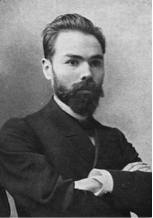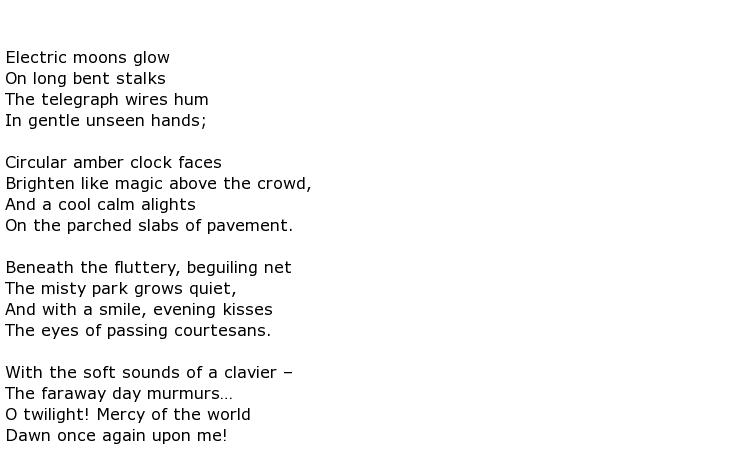 Valery Bryusov was a Russian poet and prose writer who was born at the time of the great Russian Symbolist movement in art and literature which lasted into the early years of the 20th century. Bryusov was one of the prominent members of this movement and, in addition, he was also a literary critic, historian, playwright and translator.
Valery Bryusov was a Russian poet and prose writer who was born at the time of the great Russian Symbolist movement in art and literature which lasted into the early years of the 20th century. Bryusov was one of the prominent members of this movement and, in addition, he was also a literary critic, historian, playwright and translator.
He was born Valery Yakovlevich Bryusov on the 13th December 1873, in Moscow, into a family of merchants. He spent a lot of his early years alone and pored over books constantly. He was clearly destined to grow up an intellectual and he was able to speak French and German as well as his own Russian mother tongue. He was particularly interested in the works of Jules Verne and Charles Darwin and it seemed inevitable that he would do well at school. Between the years 1885-93 he attended two separate schools in Moscow, known as gymnasiums, before going on to the Moscow State University.
His passion for literature increased while at university and he began to write his own poetry at the same time, taking the various Symbolist movements going on around Europe as his inspiration. He was also heavily influenced by philosophers such as Nikolai Fyodorovich Fyodorov and the scientist Konstantin Tsiolkovsky. Here he also began translating the work of French Symbolists such as Stéphane Mallarmé and Paul Verlaine, and then he did the same for Edgar Allan Poe’s material.
Bryusov worked hard to spread the word about symbolism and published three volumes of his own verse under the title Russian Symbolists. An Anthology (1894–95). His efforts were noticed and many young Russian poets followed his lead, adding to what rapidly became the latest fashion in Russian letters. When, in 1900, he published Tertia Vigilia his name became famous as a Russian authority on symbolist art and four years later he took up the editorship of a literary magazine called Vesy (The Balance).
His early work was described as

It had been said of his work that it came from the pen of a refined intellectual and that he was

Perhaps a good example of this lyrical, gentle style can be found in the poem Twilight where the author describes with affection the soft light cast on the streets by “electric moons” and the “dawning” of that time known as twilight. The poem is reproduced here:

His outlook changed dramatically from 1910 onwards when his style changed to something described as “cold and strained” and his stock as a poet declined accordingly. Perhaps it was the ever-growing political and social unrest that permeated the air that changed his view of the world. He witnessed first-hand the horrors of war as a correspondent and was, not surprisingly, traumatised by what he saw and was forced to write about. Indeed, he suffered a nervous breakdown as a result. By 1917 many artists and poets fled Russia as revolution took hold but Bryusov remained and became a Bolshevik supporter. His loyalty was rewarded by the new Soviet government with a place in the ministry of culture.
While, at first, he was an enthusiastic supporter of communism, he eventually became disillusioned with the wanton destruction or perversion of Russian culture and Lenin described him as a “poet anarchist”. During the early 1920s Bryusov fell into a state of deep depression, unable to cope with the grim reality of day to day life under the new regime. He contracted pneumonia, an illness from which he never recovered.
Valery Bryusov died at home in Moscow on the 9th October 1924 at the age of 50.

